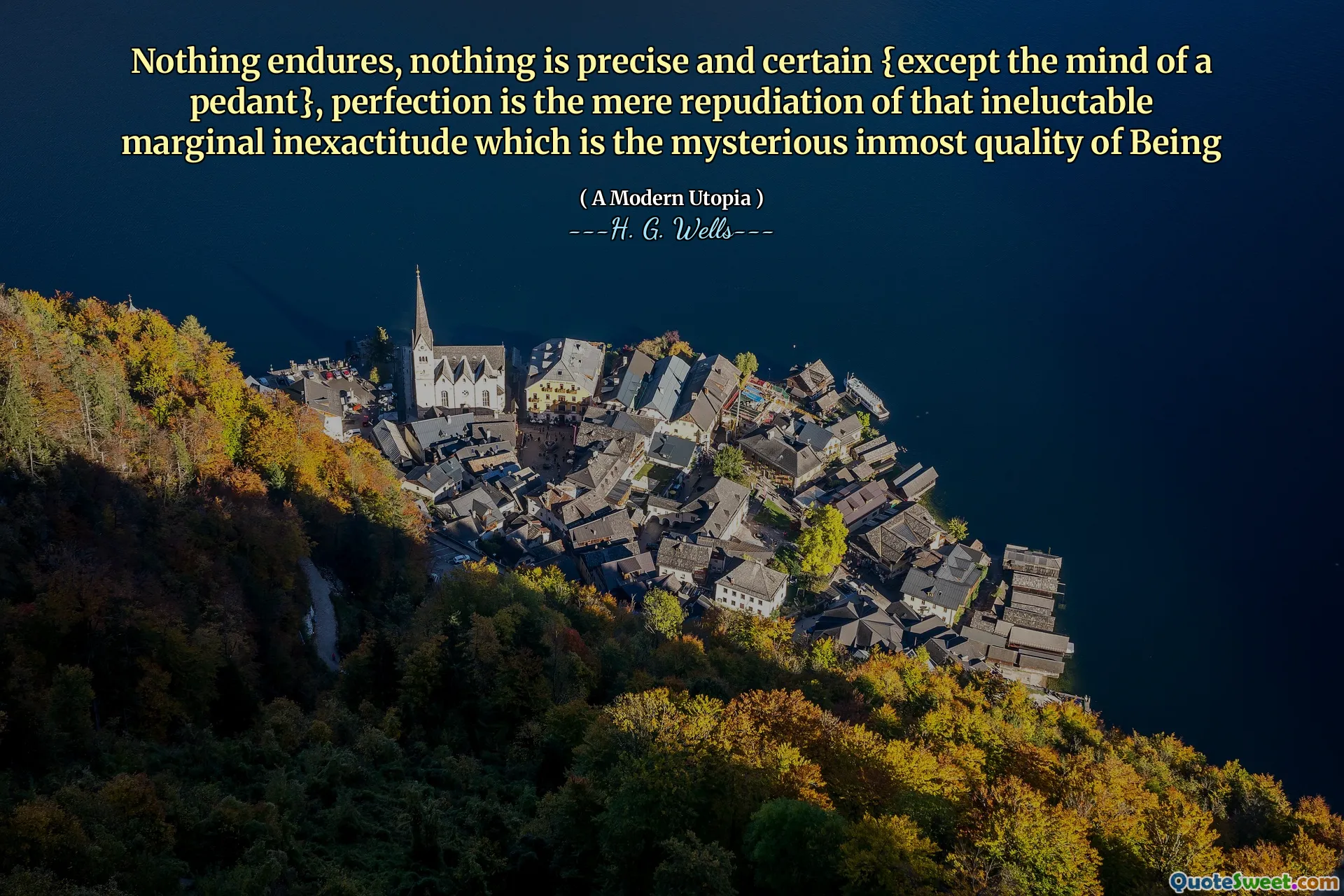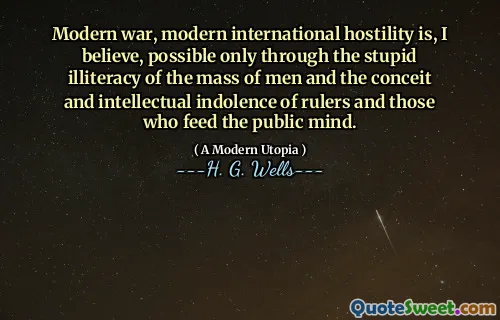
Nothing endures, nothing is precise and certain {except the mind of a pedant}, perfection is the mere repudiation of that ineluctable marginal inexactitude which is the mysterious inmost quality of Being
In "A Modern Utopia," H. G. Wells explores the concept that nothing in the world is permanent or completely exact, highlighting the transient nature of existence. He suggests that the only element that remains unchanging is the rigid mindset of a pedant, who clings to precision and correctness. This fixation often leads to a dismissal of the inherent uncertainties and imperfections that characterize life itself.
Wells posits that perfection is unattainable; instead, it ignores and rejects the diverse intricacies and ambiguities that define reality. The acknowledgment of these complexities is essential in understanding our existence, suggesting that the pursuit of perfection may be a misguided endeavor that ultimately detracts from the richness of life.








